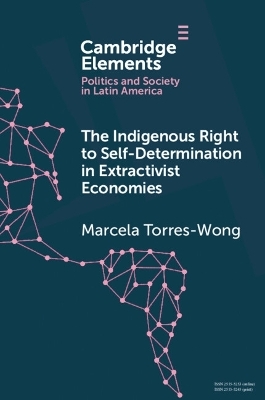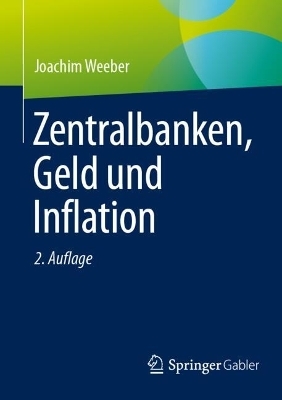
The Indigenous Right to Self-Determination in Extractivist Economies
Seiten
2023
Cambridge University Press (Verlag)
978-1-009-41090-8 (ISBN)
Cambridge University Press (Verlag)
978-1-009-41090-8 (ISBN)
This Element examines six Indigenous communities with contrasting experiences of extractive projects. It highlights the Indigenous ability to shape different self-determination outcomes, and assesses Indigenous possibilities for self-determination in the light of environmental activism and discourses on Buen Vivir.
International norms widely recognize the Indigenous right to self-determination by which Indigenous peoples define and purse their collective aspirations. Nevertheless, as progressive as legal frameworks might appear, in reality, few Indigenous communities enjoy this right and most remain vulnerable and disempowered. Activists blame Latin America's extractivist economies, while governments argue that extractive revenues are necessary to improve Indigenous life. Far from presenting a unified position, rural Indigenous peoples are most often divided over extractive industries. To assess how Indigenous self-determination has progressed, and the role that extractivism plays in this, this Element examines six Indigenous communities in Mexico, Bolivia, and Peru with contrasting experiences of extractive projects. It finds that the Indigenous ability to use favorable legislation in conjunction with available economic resources shapes different self-determination outcomes. Finally, it assesses Indigenous possibilities for self-determination in the light of environmental activism and discourses on Buen Vivir.
International norms widely recognize the Indigenous right to self-determination by which Indigenous peoples define and purse their collective aspirations. Nevertheless, as progressive as legal frameworks might appear, in reality, few Indigenous communities enjoy this right and most remain vulnerable and disempowered. Activists blame Latin America's extractivist economies, while governments argue that extractive revenues are necessary to improve Indigenous life. Far from presenting a unified position, rural Indigenous peoples are most often divided over extractive industries. To assess how Indigenous self-determination has progressed, and the role that extractivism plays in this, this Element examines six Indigenous communities in Mexico, Bolivia, and Peru with contrasting experiences of extractive projects. It finds that the Indigenous ability to use favorable legislation in conjunction with available economic resources shapes different self-determination outcomes. Finally, it assesses Indigenous possibilities for self-determination in the light of environmental activism and discourses on Buen Vivir.
1. Introduction; 2. Theory and methods; 3. The cases; 4. Conclusion; References.
| Erscheinungsdatum | 06.06.2023 |
|---|---|
| Reihe/Serie | Elements in Politics and Society in Latin America |
| Zusatzinfo | Worked examples or Exercises |
| Verlagsort | Cambridge |
| Sprache | englisch |
| Maße | 152 x 229 mm |
| Gewicht | 155 g |
| Themenwelt | Sozialwissenschaften ► Ethnologie |
| Sozialwissenschaften ► Politik / Verwaltung ► Staat / Verwaltung | |
| Sozialwissenschaften ► Soziologie | |
| Technik ► Bergbau | |
| ISBN-10 | 1-009-41090-3 / 1009410903 |
| ISBN-13 | 978-1-009-41090-8 / 9781009410908 |
| Zustand | Neuware |
| Haben Sie eine Frage zum Produkt? |
Mehr entdecken
aus dem Bereich
aus dem Bereich
Organisationen steuern, Strukturen schaffen, Prozesse gestalten
Buch | Softcover (2024)
Rehm Verlag
38,00 €
Buch | Softcover (2024)
Springer Fachmedien Wiesbaden GmbH (Verlag)
29,99 €


